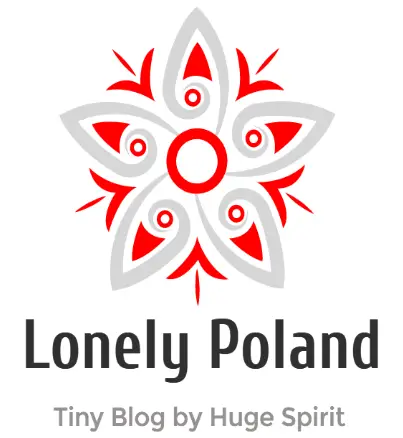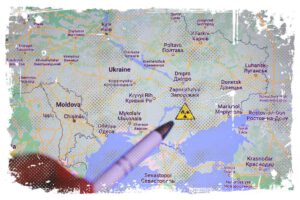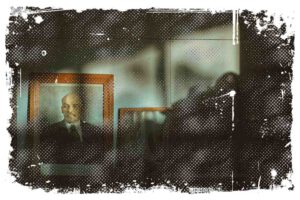„Pieśń Legionów Polskich we Włoszech” (Song of the Polish Legions in Italy), written by Jozef Wybicki, is known today as „Mazurek Dąbrowskiego” (Dabrowski’s Mazurek) and performs the role of the Polish anthem. It is a song of a fighting nation, dedicated to the organizer and commander of the legions – Jan Henryk Dabrowski. The song emphasizes the will to fight, the desire for victory, and the willingness of people to sacrifice themselves for the good of their homeland. It expresses the hope of the army and the entire nation to regain independence after years of partition.

The song was written in July 1797 in Italy. Jozef Wybicki was the author of the lyrics, while the melody’s composer has not been established. There is a chance it is just a folk melody. The tune became quickly popular among Poles, not only those who fought on Napoleon’s side in Italy but also their fellow countrymen living under the Partitions. It was recognized as the official anthem of Poland as soon as Poland regained its independence, in 1927.
Poland National Anthem „Poland Is Not Yet Lost” Translation into English
Now let’s see the original text and its translation into English.
Please note, this is not an official translation. It is mine, as I was not able to find any accurate ready-made English translation that would be helpful in understanding the anthem’s meaning.
↳ PRO TIP: Do you like traveling? Then before you buy any ticket or book an attraction, check if it's available in this worldwide Viator Database. You may save a lot of money and time. No need to thank me :)
„Poland Yet Not Lost” Anthem in Polish:
Jeszcze Polska nie zginęła,
Kiedy my żyjemy.
Co nam obca przemoc wzięła,
Szablą odbierzemy.
Marsz, marsz Dąbrowski,
Z ziemi włoskiej do Polski,
Za twoim przewodem
Złączym się z narodem.
Przejdziem Wisłę, przejdziem Wartę,
Będziem Polakami,
Dał nam przykład Bonaparte,
Jak zwyciężać mamy.
Marsz, marsz Dąbrowski…
Jak Czarniecki do Poznania
Po szwedzkim zaborze,
Dla ojczyzny ratowania
Wrócim się przez morze.
Marsz, marsz Dąbrowski…
Już tam ojciec do swej
Basi Mówi zapłakany —
„Słuchaj jeno, pono nasi,
Biją w tarabany”.
Marsz, marsz Dąbrowski…
„Poland Is Not Yet Lost” Anthem in English
Poland has not yet been lost,
While we are still alive.
Whatever has been taken from us by violence,
We will take it back with a sword.
March, Dabrowski’s march,
From the Italian countryside to Poland,
With your leadership
We will reunite with the nation.
We will cross the Vistula, we will cross the Warta,
We will be the Poles,
Bonaparte gave us an example,
How we shall win.
March, Dabrowski’s march..
The way Czarniecki arrived in Poznan
After the Swedish invasion,
For the sake of saving the homeland
We will return by crossing the sea.
March, Dabrowski’s march..
There is already a father
tearfully telling his Barbara
„Listen, these are our people,
Who are hitting the drums”.
March, Dabrowski’s march..
The Inspiring Words of the Polish National Anthem
In the text of the song, there are references to Polish history. Wybicki wanted to remind his countrymen of past victories while also giving them hope for future success and independence. He tried to make people realize that Poland had been in a difficult situation many times before, but its people never gave up fighting to protect the homeland. Please check my other article I wrote about Poland’s Independence Day from which you can learn how we celebrate that special day.
The poet wanted to remind his compatriots that the absence of a state on the map does not relieve them of their duties. There were many Poles who felt resigned and stopped believing in regaining independence after the third partition of Poland. Wybicki’s song was intended to motivate people to action and stimulate their patriotic emotions.
The author tied great hopes to the character of Napoleon Bonaparte, whose triumphs were supposed to be an example for all the Poles fighting the partitioner.
The song also influenced the anthems of other countries. Based on its melody, there was created the song „Hey, Slavs” (All-Slavic hymn), which became the anthem of Yugoslavia. After its dissolution, it briefly served as the anthem of Serbia and Montenegro. The lyrics of Wybicki’s song also inspired the authors of the Ukrainian anthem, which starts with similar words.
The Meaning Behind the Lyrics of the Anthem
The first line is a reference to the last partition of Poland. When the Kociuszko Uprising collapsed, Poland’s territory was divided between three partitioners – Prussia, Russia, and Austria. However, the song reminds us that Poland did not die because the Poles are alive. The country will exist as long as its traditions and culture are cherished. The anthem expresses hope for taking back Polish lands from enemies and regaining its independence.
In fact, Poles spotted their chance in joining France, which remained in conflict with the partitioners. A major step in this direction was the formation of Polish Legions in Italy. Wybicki also took part in this process. In the chorus, we can read about hope for the Legion’s success in returning to Poland, under the command of General Dabrowski.
But his decision to come back was related to the battles, led by Napoleon Bonaparte. The song text says, the Polish soldiers will return from the west by crossing the Warta and then the Vistula rivers, and then restore Poland’s long-awaited independence with Napoleon’s help. In the second stanza, the author recalls the profile of Stefan Czarniecki. He was a Polish commander who fought for freedom after the Swedish Deluge in 1655.
The Genesis of the Anthem
After the Third Partition of Poland in 1795, the country completely disappeared from the world map. Our national identity had a chance to survive only through culture, art, language, and memory. The entire nation sought to regain its independence. The partitioners, Prussia, Austria, and Russia, were in a constant state of conflict and had frequent wars with France.
Napoleon Bonaparte was one of the most important French generals. Since 1796, he had been located with his troops in Italy. The French-Polish agreement eventually led to the formation of the Polish Legion in 1797. General Jan Henryk Dabrowski supplied soldiers with uniforms, that were similar to the Polish ones. All the orders were given in Polish.
Jozef Wybicki, who wrote a song, was a Polish writer and politician. He served as a chamberlain for Stanislaw August Poniatowski (King of Poland). As soon as the Kosciuszko Uprising collapsed, he emigrated. He maintained contact with his friend, General Dabrowski, whom he persuaded to visit France. Wybicki took part in the formation of the Polish Legion in Italy.
In July 1797, the poet arrived in Reggio, where the troops were stationed. Wybicki was influenced by the uplifting atmosphere in the town and decided to create a patriotic song. „Song of the Polish Legions in Italy” was probably written between July 16 and 19, 1797. It was first performed on July 20, 1797, during a legion farewell ceremony. On the same day, General Dabrowski planted a „memorial tree of freedom” in the Piazza Piccolo. Wybicki probably sang the song alone or with a group of soldiers.
The song immediately became popular among all the legionaries. A year later, it was already known everywhere. The text was officially published in 1799 in Mantua in a newspaper called „Dekada Legionowa”.
When is The Anthem of Poland Played?
Historically, the Polish anthem was performed during major events, including:
- The triumphant arrival of Generals H. Dabrowski and J. Wybicki in Poznan (3 November 1806),
- The Spring of Nations (1848) in Vienna, Prague, and Berlin,
- November Uprising (1830),
- The January Uprising of 1863, as well as the Great Emigration and the First and Second World Wars.
On February 26, 1927, the Song of the Polish Legions in Italy officially became the national anthem of the Republic of Poland. Today, the national anthem is publicly performed or played during ceremonies, national holidays, and anniversaries, It is also played during historical events, for example, during the unveiling of monuments, as well as during the gold medal decoration of Polish athletes at international events. It is worth saying that the Polish anthem is also played at Polish schools at the beginning and end of the school year.
Rules of Behavior During the Singing of The Anthem in Poland
During the national anthem performance, it is necessary to:
- Maintain respect and calm by adopting a respectful posture.
- Men wearing casual clothes must take off their head covering,
- Individuals wearing uniforms that include a head covering, but do not belong to an organized group pay their respects by saluting.
- During the performance of the anthem, flag posts pay their respects by bowing the banner.
The anthem of the Republic of Poland should be performed or played in a way that ensures proper honor and respect for it.
Let me emphasize that, according to regulations issued under the Law on the Emblem, Colors and Anthem of the Republic of Polan – it is forbidden to perform the anthem with an altered melody or text. The anthem is protected by the provisions of the Constitution, the Law on the Emblem, as well as departmental regulations.
Bibliography
- https://eszkola.pl/jezyk-polski/piesn-legionow-polskich-we-wloszech-919.html
- https://bibliotekapiosenki.pl/binaries/teksty_i_nuty/054_mazurek_dabrowskiego_t.pdf



